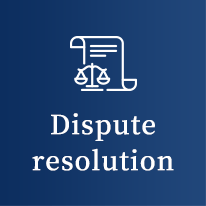Dispute over Control of Company Management of a Family Company
Outline of the Case
N Corporation was established by its founder, X, in the early postwar period, and he has managed the company as a representative for more than 40 years since then. During that time, the company had developed into a company with annual sales of 1 billion yen, with some twists and turns. Subsequently, upon X’s death, X’s eldest son A and second son B succeeded to the company, and the brothers worked closely together to manage the company. However, due to the death of A and B, a dispute arose between A’s family and B’s family regarding control of the company. N Corporation had never held a shareholders’ meeting or board of directors’ meeting, nor had it kept a list of shareholders. The only document that shows the names and ownership percentages of shareholders is the statement of criteria for determining a family-owned company, which is attached to the tax return. B’s family members filed a civil arbitration claiming that the transfer of company funds to their own account by A’s spouse was illegal and demanding that the transferred funds be returned to the company’s account. A petition for civil arbitration was filed. Subsequently, A’s spouse requested our firm to represent A’s family in the civil mediation and to finalize a mediation plan with B’s family.
Dispute Resolution through Settlement
N Corporation had never held a shareholders’ meeting or board of directors’ meeting for a long period of time, and there was no shareholders’ register. Therefore, it was important to first clarify who owned how many shares. Since there was no shareholders’ register, the only reference was the “Statement Concerning Determination of Family Company” attached to the tax return, but both parties had expressed their complaints about its contents, and there was not always agreement. Our firm believes that it is necessary to clarify the determination of shareholders through litigation or other means, but since both Family A and Family B’s main source of income was the salary paid by N Corporation, the important issue for the time being is how to distribute the cash in the company in order to establish a basis for both parties’ livelihoods. To this end, we explained that it was important to establish rules for the distribution of funds that could be agreed upon by Family A and Family B and, for the time being, to pay salaries and remuneration in accordance with those rules. As a result, both Family A and Family B gave their consent and agreed to pay 1 million yen each to Family A and Family B from the company’s funds each month as executive compensation, and the mediation was concluded.
Kuribayashi Sogo Law Office’s Services
Disputes concerning the management rights of family-owned companies are often very contentious. Although it would be a good solution if the company is divided into separate companies and each family member manages a separate company, there are many cases in which it is difficult to divide a company depending on the nature of the business. In such cases, the person with the majority of the company’s shares will gain control of the company and transfer management to their eldest son or daughter. As a result, the minority shareholders will be excluded from the management of the company, and their minority shareholdings may become completely worthless. The above case was filed by Family B, who had suddenly lost their livelihood due to the sudden cutoff of income from the company, and the mediation established rules for the distribution of cash for the time being, thus restoring stability to their lives. However, the fundamental issues regarding the management of the company, including the shareholding ratio, have not been resolved, and it is expected that various lawsuits will be filed thereafter, including a lawsuit for revocation of the resolution of the shareholders’ meeting, a lawsuit for injunction against illegal actions by the directors, and a lawsuit for damages against the directors. Kuribayashi Sogo Law Office will coordinate between the parties to achieve a fundamental resolution of disputes over control through corporate divestitures and transfers of shares by making various proposals, including those concerning tax aspects of the transfer of shares and funds.
Fees
General companies
The fee will be charged on a time-charge basis. Partners are charged 35,000 yen per hour (excluding consumption tax) and associate attorneys are charged 25,000 yen per hour (excluding consumption tax), and invoices are issued based on hours used each month.
Clients with whom we have concluded an advisory contract
For clients with an advisory contract, the hourly rate for partner attorneys is 30,000 yen (excluding consumption tax), and the hourly rate for associate attorneys is 20,000 yen (excluding consumption tax). For clients with an advisory contract, we offer a discount of approximately 20%.
Mediation Cases
In the case of conciliation cases, we can accept the case with an initial fee and a contingency fee. In the above case, the client chose the starting fee and contingency fee and paid 800,000 yen (excluding consumption tax) for the starting fee and 800,000 yen (excluding consumption tax) for the contingency fee.










